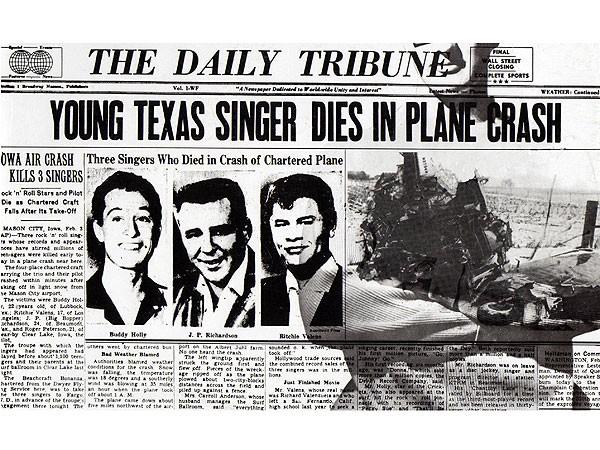Tears, yes tears, circa 1972. Don McLean was singing his singular contribution, American Pie in London. His performance was recorded by the British Broadcasting Corporation (BBC).
 Many will quickly recall the oft repeated refrain, “The day the music died.” McLean was lamenting the plane crash that killed Buddy Holly, a brilliant early rock and roll star. His was a poetic lament backed by a haunting melody. His heart sang for nine minutes—astounding.
Many will quickly recall the oft repeated refrain, “The day the music died.” McLean was lamenting the plane crash that killed Buddy Holly, a brilliant early rock and roll star. His was a poetic lament backed by a haunting melody. His heart sang for nine minutes—astounding.
Did the music die? Of course not. But Buddy Holly’s potential contributions did, as did Ritchie Valens and others who shared the small plane with him.
While death is final, most young artists today struggle with staying alive financially. The calls and emails land with a thud—Cancelled! How long, they wonder, will their life blood be stanched?
I have enjoyed being a part of the Easton jazz scene. In the jazz world, Easton is known as Jazz on the Chesapeake. And Easton is known across the music world for its eclectic offerings. Chesapeake Music, for example, presents jazz and chamber music and the Avalon spans emerging artists to retrospectives—my wife and I enjoyed Don McLean there years ago.
None of us have a silver bullet—the Lone Ranger too has died. And it is hard to predict when confirmed replaces cancelled, but I hope artists and presenters alike will come up with a transitional arrangement. Social distancing, for the predictable future, will require more modest budgets and fees. Modifications are better than cancelations.
For now about all we can do is tune in to the virtual offerings and support the organizations that will reopen Easton’s music scene. While I have enjoyed Monty Alexander and Dominick Farinacci in their virtual personas, I look forward to being in the audience when they return.
In the meantime, feel Don McLean’s lament here.
Al Sikes is the former Chair of the Federal Communications Commission under George H.W. Bush. Al recently published Culture Leads Leaders Follow published by Koehler Books.




Charles Browning says
Don McLean got it wrong. The music didn’t die, nor did Buddy Holly’s contribution. Consider this:
In 1958 Buddy Holly and the Crickets toured England. They were on all the big TV shows, and did major concerts. And all the “skiffle” groups said, “Oh, this is how you do it. Electric guitar, bass and drums. Write your own songs.” A young John Lennon and Paul McCartney saw a TV concert, and the band they were forming changed its name from the Quarrymen to the Beetles (later The Beatles) in honor of the Crickets. A young Mick Jagger saw Buddy Holly in concert. One of the Rolling Stones’ first singles was “Not Fade Away” written by Holly.
In 1959, two nights before he died, Buddy Holly played in Duluth, Minnesota, with a young Bob Dylan sitting close by. Dylan describes it as a transformational moment.
So, Buddy Holly planted the seeds of the British Invasion plus the Folk Revolution. And the music lived on.